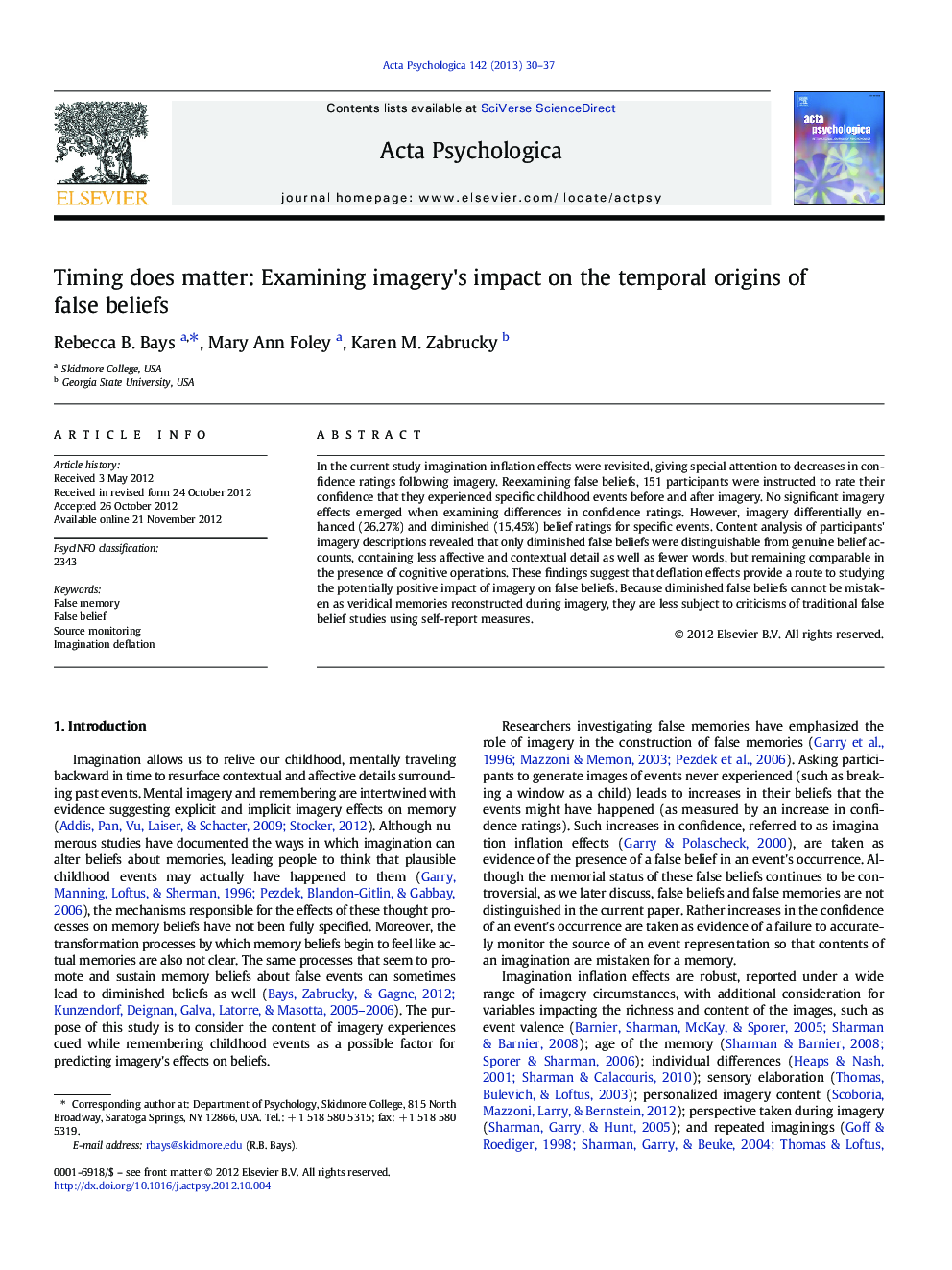| Article ID | Journal | Published Year | Pages | File Type |
|---|---|---|---|---|
| 919935 | Acta Psychologica | 2013 | 8 Pages |
In the current study imagination inflation effects were revisited, giving special attention to decreases in confidence ratings following imagery. Reexamining false beliefs, 151 participants were instructed to rate their confidence that they experienced specific childhood events before and after imagery. No significant imagery effects emerged when examining differences in confidence ratings. However, imagery differentially enhanced (26.27%) and diminished (15.45%) belief ratings for specific events. Content analysis of participants' imagery descriptions revealed that only diminished false beliefs were distinguishable from genuine belief accounts, containing less affective and contextual detail as well as fewer words, but remaining comparable in the presence of cognitive operations. These findings suggest that deflation effects provide a route to studying the potentially positive impact of imagery on false beliefs. Because diminished false beliefs cannot be mistaken as veridical memories reconstructed during imagery, they are less subject to criticisms of traditional false belief studies using self-report measures.
► We revisited imagination inflation effects, addressing confidence decreases following imagery. ► Imagery differentially enhanced and diminished false beliefs for childhood events. ► Imagery content accompanying diminishing beliefs lacked affective and contextual detail. ► We suggest an imagination deflation measure to study imagery’s positive impact on false beliefs.
